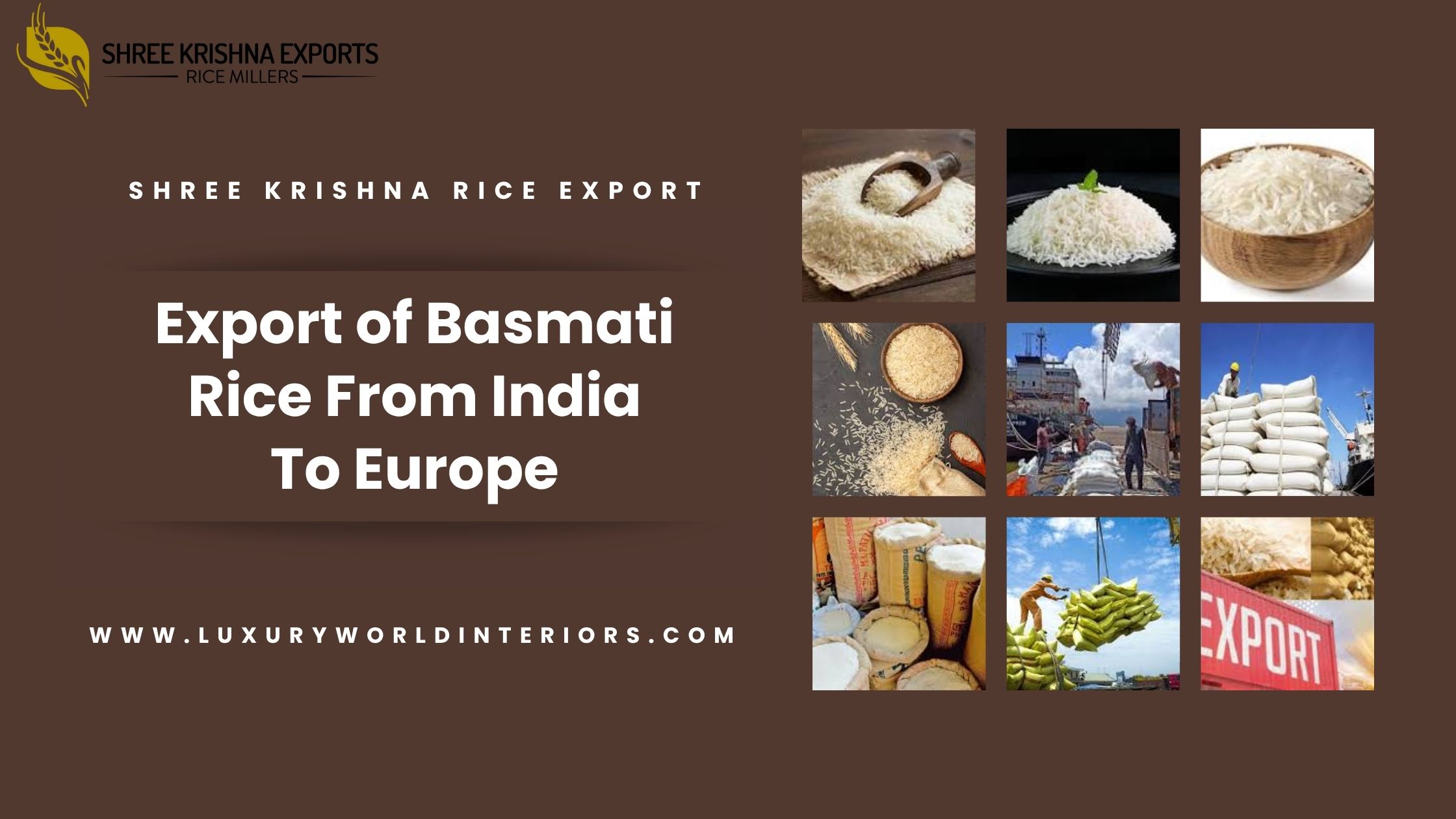The exchange of goods between India and Europe goes back to ancient times. However, it is only recently that Basmati rice has begun to be exported to Europe from India. It is finding space in homes of Europe, from the gourmet foods of Paris to retail shelves in Germany, the prominence of basmati rice is ever-increasing. As one of the leading exporters, Shree Krishna Exports is engaged in the production and supply of premium quality basmati rice. Our basmati rice is not just long grain with a distinct aroma, but also available in a wide range. We have a large market in Europe where our exports are loved by retailers and consumers alike.
To assess the key reasons behind the rise in export of basmati rice from India to Europe, we are sharing our key insights and expertise.
Rising Demand for Healthy Staple Food
Basmati rice is not only delicious but also a healthy rice with a glycemic index. Glycemic index indicates the level of sugar spike after eating carbohydrates, which is low in basmati rice compared to other types of rice. Hence, it is widely accepted as the staple food in a balanced diet. Health conscious consumers can include it in their diet, while taste enthusiasts can have it with different recipes.
Broad and Evolving Range Export of Basmati Rice From India To Europe
With the advancement of milling and grading processes, many new ranges of basmati rice have evolved in the recent few years. From cultivation to milling, these processes group together specific types of rice with distinct qualities. For instance, 1121 is known for extra long grain size, 1401 is known for early maturing period, 1718 for disease resistance and 1509 for high yield. The availability of this broad range caters to the diverse tastes and health preferences of people living in Europe.
Cultural Demand
The population of people from South Asian origins is massive in Europe. While they adapt to the local dishes, they continue to cook traditional Indian recipes also, in which Basmati rice is a key ingredient. The demand rises near festivals like Eid, Diwali and Navratri.
Improved Supply Chain
The rise in the e-commerce sector, better warehousing, logistics and improved business relations have contributed to the streamlined supply chain of export of basmati rice from India to Europe. This ensures even smaller cities and rural areas in Europe can access authentic Indian Basmati with ease.
Conclusion
In the growing culinary connection between Europe and India, basmati rice is playing the main role. It is beneficial to every shareholder of rice production, from farmers to exporters. It has become a staple ingredient as the European market has opened its arms for South Asian food. The presence of a strong diaspora also helps in this case. They enjoy a flavourful, sustainable and diverse food experience with a broad range of basmati rice.

